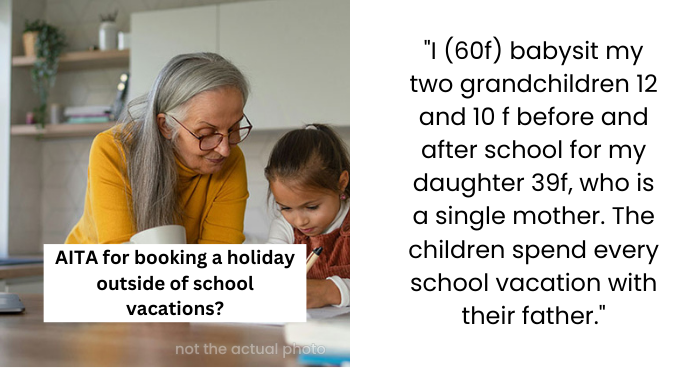MIL’s Creepy Comments About Baby Spark Family Drama After Mom Blocks Her
When a grandparent consistently breaks the rules set by a parent, it’s not just a disagreement; it’s a serious matter of respect, emotional safety, and parental power. In this real-life example, a mother is trying to protect her young son when her mother-in-law (MIL) keeps breaking the rules. This case shows how important it is to set limits with family, how disrespectful grandparents can hurt children emotionally, and how to keep family relationships healthy while protecting children’s mental and physical health.
Becoming a granny is a highlight for many older women who want to shower the new baby with love and affection
But one grandmother’s need to constantly plant kisses on her grandson has now caused a massive family fight





















Unfortunately, many parents have to deal with toxic in-laws. Things get even worse when a child’s health and mental safety are at risk. To stop the spread of diseases like neonatal herpes and seasonal viruses, the mother made it clear that she did not want to be kissed by anyone. This was a reasonable and medically backed boundary. Even though the MIL was clearly told not to cross the line, she did so many times, showing a concerning lack of respect for parental authority and the child’s well-being.
The mother-in-law’s behavior went beyond carelessness; it turned into a pattern of disrespectful behavior on purpose. Family relations experts stress that repeated boundary violations often point to deeper problems, like a desire to take charge or weaken the parent’s authority. She made fun of him (“don’t forget you can’t kiss him”) and acted passive-aggressively, showing that she didn’t want to accept her new role in the family, where she isn’t the main decision-maker.
What’s really scary about the situation is how the MIL is trying to control people’s feelings. When she is challenged, crying and saying that other people are making her feel like she “can’t do anything right” are classic signs of emotional manipulation that is meant to avoid taking responsibility. Texting the mother that she “needs help” as a reaction is a classic example of gaslighting, which is done to make the mother doubt her perfectly reasonable worries.
The mental pain the mother went through while she was recovering from giving birth makes the situation even worse. Even though there were medical problems after an emergency C-section, the MIL kept showing up when she wasn’t asked and getting in the way of a vulnerable and physically demanding recovery. Postpartum Support International says that this kind of disregard can make postpartum sadness and anxiety even worse in women who are already dealing with these conditions.
It’s also important to notice when physical boundaries are broken and troubling behaviors like greasy kissing and saying inappropriate things about the child like “tastes so good” start to happen. Many grandparents show affection, but when parents clearly disagree and the level of disinterest shown, it raises serious concerns about respecting a child’s bodily autonomy, which is becoming a more well-known part of healthy parenting (American Academy of Pediatrics).
Because trust and safety have been broken so many times, the mother’s choice to limit her child’s unsupervised access is both right and necessary. Child safety experts say that setting limits for parents (Verywell Family) is not about hurting extended family, but about keeping parental control and looking out for the child’s well-being.
The second worry, that the MIL might talk badly about the mother to the child when he gets older, is also a real one. To get back in control, toxic grandparents often try to change how their grandkids see things (Psychology Today). Setting strong, clear limits now will protect you from this kind of emotional manipulation in the future.
Netizens came to the comments to offer the mom their advice





This situation is a stark example of why respecting parental boundaries is non-negotiable, even — and perhaps especially — within families. When a grandparent repeatedly crosses lines, dismisses reasonable health concerns, and engages in emotional manipulation, parents are fully justified in limiting access, enforcing supervised visits, or cutting ties if necessary to protect their child’s physical and emotional health.
While it may feel painful to place limits on family interaction, doing so is an act of strength, not division. Parenting boundaries exist to protect children — not to appease adults who refuse to honor them. In navigating such complex family dynamics, it is crucial to prioritize the immediate family’s needs above outdated expectations or misplaced guilt.











